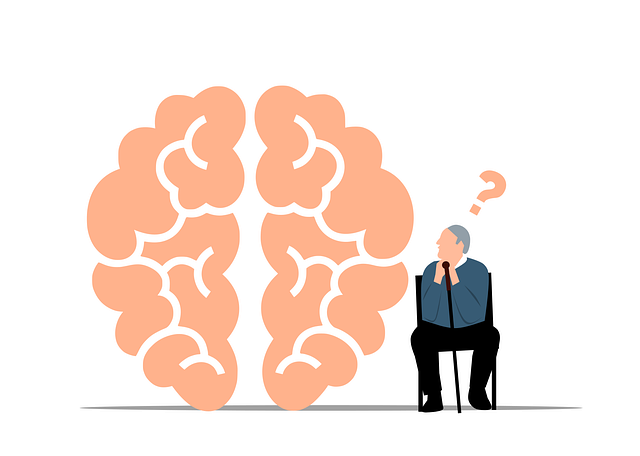Eating disorders among adolescents are complex issues requiring immediate attention. Signs include drastic dietary changes, intense fear of weight gain, and distorted body image, leading to conditions like anorexia or bulimia. Effective treatment involves open dialogue, professional therapy integrating counseling, family support, and medical care, with Cognitive Behavioral Therapy (CBT) as a proven method. Specialized organizations offer workshops promoting stress management and positive relationships with food and bodies. For optimal support, focus on therapy for adolescent teens eating disorders, incorporating evidence-based methods, cultural sensitivity, and additional strategies like journaling, mindfulness meditation, and emotional regulation techniques to enhance mental wellness.
Mental wellness promotion is crucial, especially for adolescent teens grappling with eating disorders. This article delves into the intricate world of these disorders, providing insights on their signs and symptoms. We explore the transformative power of therapy as a treatment approach, highlighting its effectiveness in helping young individuals overcome challenges. Furthermore, we offer practical strategies beyond traditional therapy to foster mental wellness, empowering teens to navigate their journeys with resilience. Remember that early intervention and comprehensive support are key to successful recovery.
- Understanding Eating Disorders in Adolescent Teens: Signs and Symptoms
- The Role of Therapy in Treating Youth with Eating Disorders
- Strategies for Promoting Mental Wellness Beyond Traditional Therapy
Understanding Eating Disorders in Adolescent Teens: Signs and Symptoms

Eating disorders among adolescent teens are complex conditions that require early identification and professional intervention. Signs and symptoms can vary but often include drastic changes in eating habits, an intense fear of gaining weight, and a distorted body image. Teens might display excessive exercise routines or refuse to eat altogether, leading to significant weight loss or even malnutrition. They may also have a preoccupation with food, calories, and dieting, often spending excessive time planning meals or engaging in compulsive behaviors like purging or excessive exercising.
If you suspect an adolescent teen is struggling with an eating disorder, it’s crucial to encourage open communication and seek therapy. Professional treatment combines psychological counseling, family support, and sometimes medical care. Therapies such as cognitive-behavioral therapy (CBT) are effective in addressing the underlying causes, promoting resilience building, and teaching conflict resolution techniques for healthier coping mechanisms. Additionally, organizations specializing in eating disorders offer stress management workshops to empower teens with tools to navigate triggers and develop a positive relationship with food and their bodies.
The Role of Therapy in Treating Youth with Eating Disorders

Therapy plays a pivotal role in treating adolescent teens suffering from eating disorders, offering a safe and supportive environment to address deep-rooted issues. Evidence-based therapeutic approaches, tailored to each individual’s needs, are effective in managing symptoms and fostering positive relationships with food and bodies. Cognitive Behavioral Therapy (CBT), for instance, focuses on identifying and changing negative thought patterns related to eating and body image, while Family-Based Treatment empowers families to support their teens’ recovery journey.
Incorporating cultural sensitivity within mental healthcare practices is essential for effective treatment. Understanding the unique cultural contexts and beliefs surrounding food, bodies, and health is crucial when assisting young people from diverse backgrounds. Additionally, Stress Management Workshops and organizations that promote Mind Over Matter principles can empower adolescents to develop healthy coping mechanisms, enhancing their overall mental wellness.
Strategies for Promoting Mental Wellness Beyond Traditional Therapy

Promoting mental wellness beyond traditional therapy is a multifaceted approach that can significantly benefit adolescents experiencing eating disorders. One effective strategy involves encouraging self-awareness exercises. Techniques such as journaling, mindfulness meditation, and guided imagery help teens gain insight into their thoughts, emotions, and behaviors, fostering better understanding of their triggers and coping mechanisms. This increased self-awareness enables them to make more conscious decisions about their well-being.
Additionally, teaching emotional regulation skills is vital for managing symptoms associated with eating disorders. Techniques like deep breathing exercises, progressive muscle relaxation, and cognitive reframing help teens navigate intense emotions without resorting to disordered behaviors. Incorporating these strategies into daily routines empowers adolescents to proactively manage their mental health, complementing traditional therapy for adolescent teens with eating disorders and risk management planning specifically tailored by mental health professionals.
Promoting mental wellness among adolescent teens involves a multifaceted approach, especially regarding eating disorders. While therapy plays a crucial role in treating signs and symptoms, it’s just one piece of the puzzle. By understanding the nuances of these disorders and adopting strategies beyond traditional therapy, we can create a supportive environment that fosters overall mental health. Implementing these practices enables us to effectively navigate the challenges faced by young individuals, ensuring they receive the comprehensive care needed for recovery and long-term well-being.









